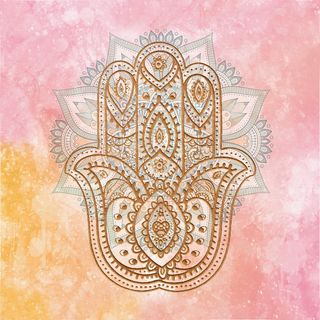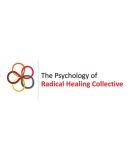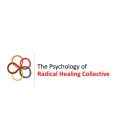Coronavirus Disease 2019
Envisioning Collective Thriving During Ramadan
Reflections on healing for Arab, Middle Eastern, and North African people
Posted April 30, 2020

By Amir H. Maghsoodi, Helen A. Neville, Hector Y. Adames, Grace A. Chen, Jioni A. Lewis, Bryana H. French, Nayeli Y. Chavez-Dueñas, & Della V. Mosley, The Psychology of Radical Healing Collective.
“The pursuit of full humanity, however, cannot be carried out in isolation or individualism, but only in fellowship and solidarity” (Freire, 2018, p. 85).
The holy month of Ramadan does not look the same during the current Coronavirus Disease 2019 (COVID-19) global pandemic. Normally marked by daily community gatherings, in-person get-togethers essentially have been eliminated due to COVID-19. Still, for Arab/MENA individuals who also practice Islam, the daily rituals of Ramadan are opportunities for increased inner reflection, spiritual cleansing, and affirmation of one’s strength over material impulses; this comes at a time when healing is deeply needed.
For Arab/MENA communities, anxiety and trauma resulting from COVID-19 compound historic experiences of oppression and marginalization. For example, Iranian Americans – separated from family and friends in Iran by the Muslim Ban – grieve the senseless toll of COVID-19 in their homeland. The sanctions and political animosity between the Islamic Republic and the administration in the United States (U.S.) has deepened the sorrow. In Palestine, Israeli occupation and policing have complicated Palestinian efforts at curbing the spread of the virus. Meanwhile, a global rise in anti-Muslim hate crimes related to the pandemic has washed away any illusions for Muslims around the world that this pandemic is “the great equalizer.” Examples of Islamophobia in the current moment include Hindutva targeting of Indian and Kashmiri individuals of Muslim faith and the increased online hate crimes documented in the United Kingdom.
It is during these seemingly hopeless times that Ramadan arrives, calling on observants to be hopeful and believe in the human spirit’s capacity for healing. But how can one remain hopeful in the face of intergenerational wounds of oppression and marginalization? How can one pursue healing during a global pandemic, especially a pandemic that has highlighted the toll of racism and illustrated the failures of affluent governments in caring for their own citizens? Research in psychology can provide insights for moving beyond mere coping with the wounds of oppression, toward developing a process of healing that manifests in thriving and addressing the very injustices that inflict those wounds in the first place.
The Psychology of Radical Healing framework conceptualizes healing as a journey of reclaiming the resiliency and the dignity of one’s cultural histories and traditions and embracing a liberation mindset aimed at collective resistance to social injustices. Drawing on this framework, we offer five suggestions for how Arab/MENA communities may incorporate radical healing, especially as many expand their spiritual practice during the month of Ramadan. The suggestions below may apply broadly to many communities, however, as this time of uncertainty calls on all of us to increase our self-reflection and commitment to social justice:
1. Strengthen Connection to Cultural and Ethnic Practices and Traditions
By connecting with cultural practices that are rooted in our ethnic identities, we develop a stronger sense of connection to our community and engage with core elements of our identity. Engaging in cultural practices can thus increase our sense of belonging and serve to enrich our understanding of the self. Especially for immigrants and their children in the U.S., where naturalization is a characteristically assimilationist process, such practices can connect or reconnect us to our ancestral histories and traditions.
For those observing Ramadan and wanting to connect with community, you may join virtual communities such as the one at digitalramadan.com.
2. Deepen one’s Understanding of Arab/MENA Peoples’ Histories and Identities
Identity is sculpted by the tides of history, and understanding history can be a way to also understand oneself more fully. The legal racial standing of Arab/MENA peoples in the U.S. as “White”, for example, is not a matter of happenstance. Rather, it is a relic of American racial prerequisite cases and the longstanding racial illegibility of Arab/MENA individuals to other Americans. Despite being legally White, Arab/MENA Americans live a racialized existence marked by both hypervisibility (e.g., racial profiling at airports) and invisibility. Moreover, differential experiences of racialization based on skin tone further complicates the marginalization of Arab/MENA Americans in the U.S.
The amplification of racist stereotypes and the simultaneous erasure of the real aspects of Arab/MENA identities in the U.S. have resulted in cultural templates of Arab/MENA identity that fall short and do not resonate with individuals’ actual sense of self. For some in the diaspora, this can lead to a diminished or shaky sense of cultural belonging. Compounding this feeling of invisibility is the continued lack of recognition in the current 2020 US Census. Thus, studying critical texts related to Arab/MENA histories in all of their diversity may result in the formation of a more culturally resonant and liberative sense of identity for Arab/MENA Americans.
3. Look Inward: Confront Internalized Racism and Islamophobia
Structural policies, such as the Countering Violent Extremism Initiative, harm Arab/MENA American communities by fueling suspicion and internalized oppression among community members. Pursuing radical healing for oneself also includes increasing one’s self-awareness of internalized prejudices and beliefs rooted in racism, xenophobia, sexism, ableism, and other oppressive forces. Whether this process takes place through reading of critical texts, engaging in discussions with diverse groups, or other means, a radical vision of healing calls on us to shine light on these difficult aspects of our experience and find ways to address them.
4. Look Outward: Nurture Relationships with Co-Liberators from the Global Majority
In Western countries, Communities of Color are often referred to as minority or minoritized communities. Yet, there remains the fact that numerically, these same communities are together part of a much larger group, the Global Majority. By embracing a collective liberation mindset and joining in power with other co-liberators from the Global Majority, one may feel an increased sense of support, strength, unity, and hope. Joining forces with active social justice and advocacy groups not only impacts policies affecting Communities of Color, but it is also a valuable opportunity for developing close friendships and alliances with other co-liberators. Examples include: MPowerChange and AMENA-Psy.
5. Embrace Radical Hope
If conventional hope involves a passive wishing for something good to materialize, radical hope encompasses a re-envisioning of what is possible and taking action to bring it into being. Radical hope draws on collective, historical, and cultural resiliency as much as it draws from one’s personal inner strength. This resiliency, and the hope and faith that it inspires, is illustrated well in the Sufi saying, ”این نیز بگذرد” [This too shall pass]. Like all aspects of radical healing, radical hope is an active exercise and practice. For some examples of cultivating radical hope during COVID-19, browse and contribute to the #RadicalHopeRising Twitter thread. A practice of radical hope thus incorporates reflecting on and taking action toward building a better tomorrow, knowing that the pandemic is only temporary and that together we can build a future where our communities collectively can enjoy healing and liberation.
In the present moment of uncertainty and distress, the arrival of Ramadan offers an invitation for envisioning healing and social justice. We offer the five suggestions above for embracing a vision of radical healing and pursuing an agenda of collective thriving for Arab/MENA communities.
References
Abdulrahima, S., James, S.A., Yamouta, R., & Baker, W. (2012). Discrimination and psychological distress: Does Whiteness matter for Arab Americans? Social Science & Medicine, 75(12), 2116-2123. https://doi.org/10.1016/j.socscimed.2012.07.030
Awad, G. H., & Amayreh, W. M. (2016). Discrimination: Heightened prejudice post 9/11 and psychological outcomes. In M. M. Amer & G. H. Awad (Eds.), Handbook of Arab American psychology (p. 63–75). New York, NY: Routledge.
Awad, G. H., Kia-Keating, M., & Amer, M. M. (2019). A model of cumulative racial–ethnic trauma among Americans of Middle Eastern and North African (MENA) descent. American Psychologist, 74(1), 76–87. https://doi.org/10.1037/amp0000344
Bailey, D. (2020). A home for American Arab, Middle Eastern and North African psychology: A new association supports this culturally and religiously diverse population. Monitor on Psychology, 51(1), p. 24. Retrieved from https://www.apa.org/monitor/2020/01/news-home-psychology
Freire, P. (2018). Pedagogy of the oppressed: 5th anniversary. New York, NY: Bloomsbury Publishing.
French, B. H., Lewis, J. A., Mosley, D. V., Adames, H. Y., Chavez-Dueñas, N. Y., Chen, G. A., & Neville, H. A. (2020). Toward a psychological framework of radical healing in Communities of Color. The Counseling Psychologist, 48(1), 14-46. https://doi.org/10.1177/0011000019843506.
Ghorashi, H. (20xx). National identity and the sense of (Non-) Belonging: Iranians in the United States and the Netherlands. In S. Alghasi, T.H. Eriksen, & H. Ghorashi (Eds.), Pradoxes of cultural recognition: Perspectives from Northern Europe. New York, NY. Routledge.
Maghbouleh, N. (2020). From white to what? MENA and Iranian American non-white reflected race. Ethnic and Racial Studies, 43(4), 613-631. https://doi.org/10.1080/01419870.2019.1599130
Mosley, D., Neville, H. A., Chavez- Dueñas, N. Y., Adames, H. Y., Lewis, J. A., & French, B. H. (2020). Radical hope in revolting times: Proposing a culturally relevant psychological framework. Social and Personality Compass, 1-12. https://doi.org/10.1111/spc3.12512




